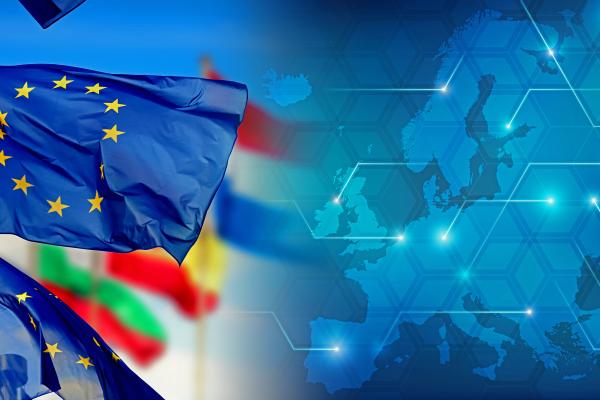The Technical Support Instrument (TSI) provides tailor-made technical expertise to EU Member States to design and to implement reforms, in a wide range of areas such as revenue administration and public financial management, public administration and governance, growth and business environment, labour market, education and social services, migration, and financial market and access to finance. The TSI has been also supporting the preparation and implementation of Recovery and Resilience Plans.
Initiated in 2021, the TSI is the successor of the Structural Reform Support Programme (SRSP). Since 2017, both programmes have helped design, develop and implement over 2000 reform projects in 27 Member States. Those reforms support Member States address their reform agenda, in line with the EU priorities and the country specific recommendations issued in the context of the European Semester.
COMPLETED AND ONGOING REFORM PROJECTS IN SPAIN*
* The above data include all projects completed and ongoing at the time of the announcement of the annual TSI financing decision. During their execution, projects can be further split or aggregated, cancelled or withdrawn. Therefore, figures related to the approved reform support projects can slightly differ.
Reform projects approved under the Technical Support Instrument
The Technical Support Instrument annual cycle is launched every year during the dedicated TSI Annual Conference. The conference also starts the discussion with Member States on potential multi-country projects, geared at addressing common issues among Member States thereby emphasizing the EU added-value of the instrument. The event is also the opportunity to present the new "Flagship" projects, supporting reforms which are largely needed across Member States and are in line with the EU key political priorities.
For 2025, the Commission approved the following 16 reform support projects for Spain:
- Supporting the labour market reintegration of people on temporary incapacity benefits
- Integrated approaches to address the Demographic Challenge in Spain
- Local Corruption Risks and Integrity Indicators System
- Improving the governance of eGovernment services at regional level
Multi-country projects:
- Mapping, common denominator, best practices and common dictionary of AML/CFT related STR reporting obligations, including financial data and transaction records, received spontaneously and upon request by private sector obliged entities
- Facilitating the CSRD implementation by mapping the data sources
- Evidence-informed policy making for green and digital transitions
- Consortium of strategic industrial reserves based in production capabilities (SIRPRO)
- Technical support for the implementation of the Carbon Border Adjustment Mechanism (CBAM) in Spain
- PACE - Implementation of the AI Act
- PACE - The Audit Learning Hub: Strengthening the skills of internal auditors to conduct audits of the core activities of central banks and national competent authorities
- Strengthening governance and capacity for coordination of health investments in Spain- Safe Nurse Staffing by nursing intensity and Patient Classification Systems
- Integrated environmental monitoring informs adaptive management of coastal wetlands
- EU Supervisory Digital Finance Academy: Strengthening Supervisory Capacity in Innovative Digital Finance
- Implementing Effective Green Budgeting Practices
For 2024, the Commission approved the following 13 reform support projects for Spain:
- (Phase II) Strengthening child-friendly justice through effective co-operation and coordination among different Barnahus-type services in the regions of Spain
- Advanced management of a road network through Artificial Intelligence
- Advanced training in NLP/LLM
- Evaluation and monitoring of the impact of the Startup Law as a basis for promoting the development of the innovative entrepreneurship ecosystem
- Innovative formulas for the compatibility of unemployment benefits with work-based learning and income
- Strengthening Insurance Supervision in Spain
Multi-country projects:
- Boosting the cooperation on the usage of distributional impact assessment through microsimulation
- IORP II Implementation
- Strengthening social protection capacity and enhancing the labour market integration of the Minimum Income Scheme (MIS) beneficiaries by the application of Artificial Intelligence (AI) to the labour market supply and demand matching
- Supporting regional entrepreneurship through innovative technologies and AI in public services
- Supporting the successful implementation of the EU Health Technology Assessment Regulation by AEMPS
- Sustainability in Local Public Finances (SLPF)
- Gender mainstreaming in public policy and budget processes in Spain
For 2023, the Commission approved the following 19 reform support projects for Spain:
- Centralisation of services and development of e-government catalogue at local level in Spain
- Building the strategy and foundations of a centralized IT platform for TCNs labour market inclusion.
- Skills intelligence strategy for higher education, including support on micro-credential design
- Design of a strategy for the creation of community participatory processes, focussed on equity in health, at local level
- Strengthening policies and governance arrangements within the Spanish national employment system
- Capital markets for a vibrant and sustainable Spanish economy and corporate sector
Multi-country projects:
- Integration of environmental dimensions in public finances - implementing the 'Do No Significant Harm' (DNSH) principle in public funding programme
- PACE - Civil service mobility
- PACE - Detection and investigative tools in competition enforcement
- National Handbook - Bridge institution and Asset Separation Tool sections and supporting material
- Youth FIRST - supporting children and youth wellbeing, education, training, social protection and labour prospects
- Mapping competencies of national authorities in the area of implementation of EU restrictive measures. Best practices and legislative recommendations.
- Strengthening the capacity of Independent Fiscal Institutions (IFIs)
- External Evaluation of the Spanish Independent Authority for Fiscal Responsability (AIReF)
- Industrial ecosystems
- Proof of concept of AI models in market abuse monitoring
- Measuring Citizen’s Satisfaction with Key Government Services for Better Performance and Enhanced Trust
- Project in relation to the communication obligations of the Spanish Recovery, Transformation and Resilience Plan.
- Civic Participation and Emergent Technologies
In 2022, the Commission approved 13 reform projects for Spain:
- Statistical Interoperability Node
- Reserva Estratégica basada en las Capacidades de Producción Industrial, (RECAPI) Strategic Reserve of critical resources based on Industrial Capabilities
- Support to the tourism ecosystem: towards a more sustainable, resilient and digital tourism
- Secure communication channel between ACER and CNMC to comply with REMIT obligations on energy wholesale market monitoring
- Governance and Monitoring System for National Plan for Digital Skills
- Occupational Pension-Plans Reform (Spain)
- Standardizing and incorporating telemedicine in the Spanish National Health System in every Autonomous Community
- Barnahus Spain
Multi-country projects:
- EU Supervisory Digital Finance Academy - CNMV/BDE
- Implementation of the European Child Guarantee
- AML risk analysis and supervision in the area of correspondent banking, Spain
- Support to REPowerEU
- Catalonia Digital skills for health and care systems
More information can be found in the 2022 Country Factsheets.
In 2021, the Commission approved the following 17 reform projects for Spain:
- Support for the execution of the National Artificial Intelligence Strategy
- Strategy for BIM implementation in public procurement in Spain
- A National Anti-Fraud Strategy for Spain
- ICT strategy of the State Administration and modernisation plan for the public administrations
- Improving the provision of employment services of the National Employment System in Spain
- Success for All: Tackling ESL and Promoting Talent
- Support for the development of a legal framework and a practical basis for issuing sustainable debt
- Spanish National Mobility System
- Technical support for an integral reform of the environmental tax legal framework of the Autonomous Region of Andalusia
- Support to implement the digital transformation of the administration and public services related to telecommunications
- ICO's Sustainability adaptation to requirements in EU Regulation (InvestEU Sustainability Proofing and Climate Tracking, EU Taxonomy,...)
- Spending review on climate change policies and assessment of the economic impact of climate change-related risks
- Promotion of cyber justice in Spain, phase III: Judicial organization and quality management
- Adapting primary care services in Spain
- Reform of Inclusion Itineraries for Minimum Income Scheme Beneficiaries and other Vulnerable Groups
- Overcoming Barriers for Innovation in the Entrepreneurship Ecosystems of Andalusia, Navarre, Extremadura, and Madrid
- Implementation and monitoring of the Recovery and Resilience Facility for the green transition
More information can be found in the 2021 Country Factsheets.
Structural Reform Support Programme (SRSP) projects (2017-2020)
The TSI expands on the experience of the SRSP programme in building capacity in Member States. You can find the full list of SRSP projects here.
Highlighted projects

The State Public Employment Service in Spain (Servicio de Empleo Público Estatal - SEPE) is the national body in charge of ensuring the effective coordination of employment policies and programmes. As part of this project, technical support is being provided to assist SEPE in conducting a thorough internal assessment, to evaluate how different, Recovery and Resilience Plan (RRP)-funded employment programmes are being implemented throughout the Spanish territory.

The European Commission is providing Spain with technical support regarding technical, operational and legal challenges of a new and innovative reform: the creation of a strategic reserve to mitigate the vulnerability of essential resources and promotion of more resilient supply chains with capacity to quickly recover from challenging events, while reinforcing EU Single Market.



